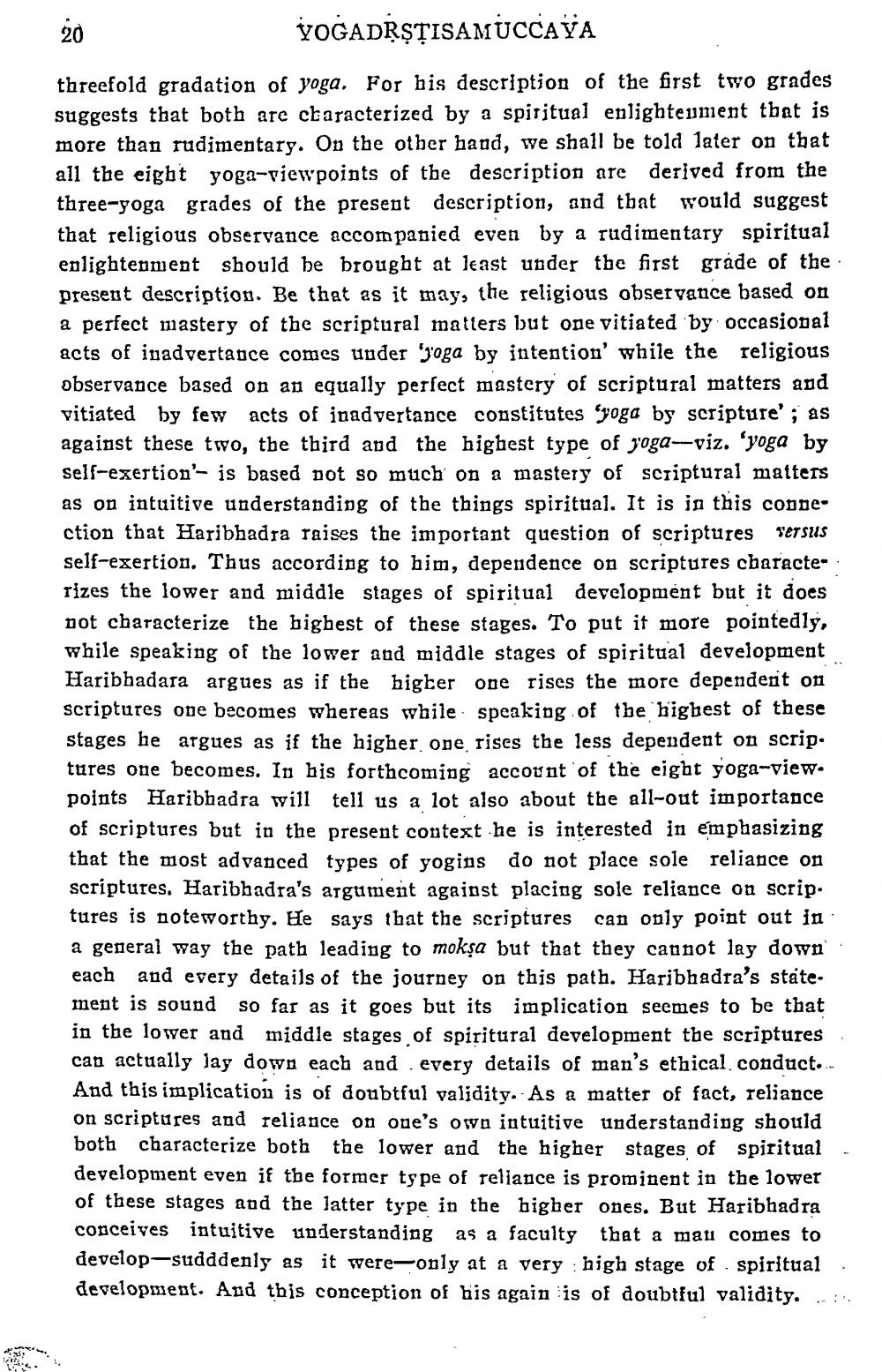________________
VOGADRȘTISAMUCCAYA
threefold gradation of yoga. For bis description of the first two grades suggests that both are characterized by a spiritual enlighteunient that is more than rudimentary. On the other hand, we shall be told later on that all the eight yoga-viewpoints of the description are derived from the three-yoga grades of the present description, and that would suggest that religious observance accompanied even by a rudimentary spiritual enlightenment should be brought at least under the first grade of the present description. Be that as it may, the religious observance based on a perfect mastery of the scriptural matters but one vitiated by occasional acts of inadvertance comes under 'goga by intention' while the religious observance based on an equally perfect mastery of scriptural matters and vitiated by few acts of inadvertance constitutes Syoga by scripture' ; as
nese two, the third and the highest type of yoga-viz. 'yoga by self-exertion'- is based pot so much on a mastery of scriptural matters as on intuitive understanding of the things spiritual. It is in this conde ction that Haribhadra raises the important question of scriptures SETSUS self-exertion. Thus according to him, dependence on scriptures cbar rizes the lower and middle stages of spiritual development but it does not characterize the bighest of these stages. To put it more pointedly, while speaking of the lower and middle stages of spiritual development Haribhadara argues as if the higter one rises the more dependent on scriptures one becomes whereas while speaking of the highest of these stages he argues as if the higher one rises the less dependent on scrip. tures one becomes. In his forthcoming account of the eight yoga-view. points Haribhadra vill tell us a lot also about the all-out importance of scriptures but in the present context he is interested in emphasizing that the most advanced types of yogins do not place sole reliance on scriptures. Haribhadra's argument against placing sole reliance on scrip. tures is noteworthy. He says that the scriptures can only point out in a general way the path leading to mokşa but that they cannot lay down each and every details of the journey on this path. Haribhadra's state. ment is sound so far as it goes but its implication seemes to be that in the lower and middle stages of spiritural development the scriptures. can actually lay down each and every details of man's ethical conduct.... And this implication is of doubtful validity. As a matter of fact, reliance on scriptures and reliance on one's own intuitive understanding should both characterize both the lower and the higher stages of spiritual development even if the former type of reliance is prominent in the lower of these stages and the latter type in the higher ones. But Haribhadra conceives intuitive understanding as a faculty that a matt comes to develop-sudddenly as it were only at a very high stage of spiritual. development. And this conception of his again is of doubtful validity.. .




